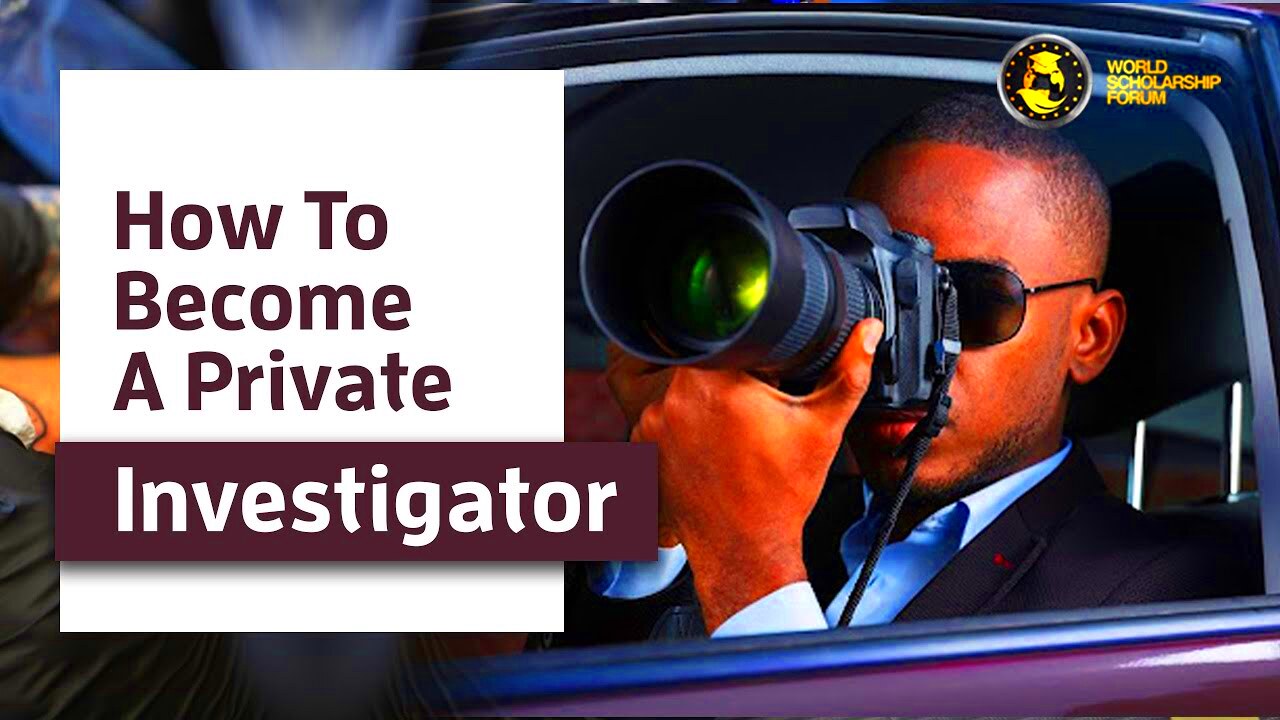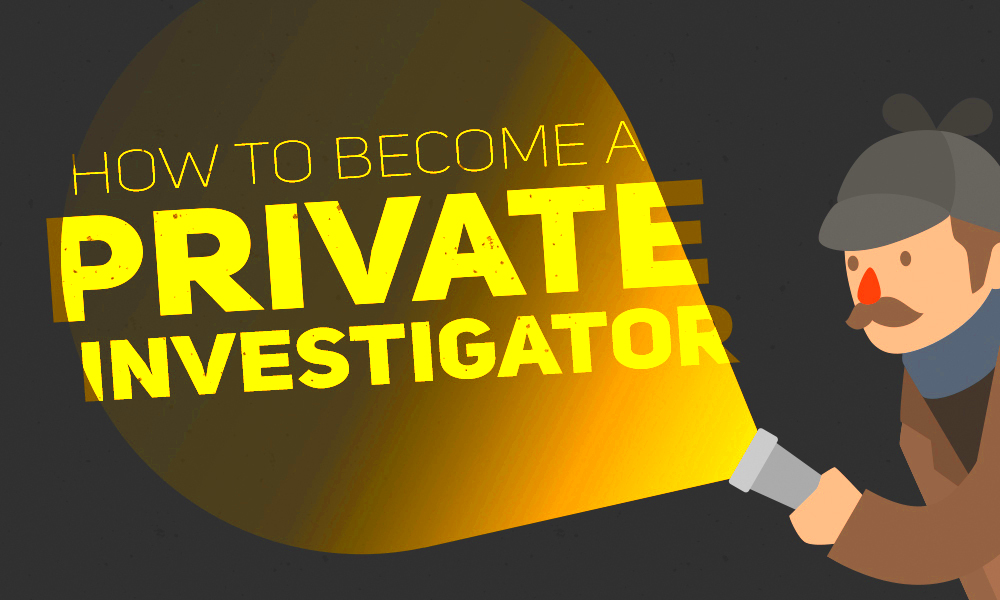If you’re curious about becoming a freelance private investigator, you're not alone. This career offers exciting opportunities for those who enjoy solving puzzles and working independently. As a private investigator, you’ll conduct research, gather information, and solve mysteries for clients ranging from individuals to businesses. What's great about being a freelancer is that you get to set your own hours and choose the cases you want to take on. It can be challenging, but the rewards are worth it if you have a passion for investigation and a keen eye for detail.
Skills Needed to Become a Successful Private Investigator

To succeed as a freelance private investigator, you'll need to develop several important skills. Here are the key skills that can help you excel in this field:
- Analytical Thinking: Being able to analyze data, connect dots, and solve complex problems is essential.
- Attention to Detail: Missing small clues can mean missing the solution to a case, so sharp attention to detail is critical.
- Research Skills: You must know how to gather information, whether it's from public records, databases, or interviews.
- Communication Skills: You'll often need to interview people and explain your findings clearly to clients.
- Discretion and Ethics: As a private investigator, maintaining client confidentiality and following legal guidelines is vital.
These skills will help you navigate various cases, from background checks to surveillance, and build your reputation as a reliable investigator.
Also Read This: How to Change Currency on Fiverr: A Step-by-Step Guide
Steps to Get Started as a Freelance Private Investigator

Starting your freelance career as a private investigator requires a few key steps. Here’s a breakdown to guide you through the process:
- Get the Necessary Education and Training: Although there’s no formal degree required, taking courses related to criminal justice, law enforcement, or private investigation is beneficial.
- Obtain Relevant Licenses: Most states require private investigators to hold a valid license. Research your state’s requirements and apply accordingly.
- Gain Experience: Many new private investigators start by working with established agencies before going freelance. This experience will give you valuable insights into the job.
- Set Up Your Business: As a freelancer, you’ll need to handle your own taxes, marketing, and client contracts. Create a business plan, set up a professional website, and ensure you're compliant with local regulations.
- Build a Portfolio: Even as a new freelancer, building a portfolio of successful cases is essential. Offer your services to build credibility and attract clients.
By following these steps, you can set yourself up for success as a freelance private investigator.
Also Read This: How to Unpause Your Gig on Fiverr: A Step-by-Step Guide
How to Set Up Your Freelance Private Investigator Profile

Setting up a professional profile is crucial when starting your career as a freelance private investigator. This profile will serve as your first impression to potential clients, so it’s important to showcase your skills, experience, and expertise in the best light possible. Here's how to get started:
- Create a Strong Online Presence: A professional website or profile on freelance platforms is key. Include your qualifications, services offered, and contact information.
- Highlight Your Skills and Experience: Make sure to clearly list the skills you have acquired, such as surveillance, investigative research, and interviewing, as well as any certifications or training you've completed.
- Include Testimonials: If you have past clients or supervisors who can vouch for your work, include their positive feedback. It adds credibility.
- Set Clear Rates: It’s important to be transparent about your pricing. You can set hourly rates or fixed prices for certain services. Make sure these are competitive for your market.
- Ensure Privacy and Professionalism: Your clients must feel comfortable trusting you with sensitive information, so maintain a professional tone and emphasize confidentiality in your profile.
Once your profile is set up, you’ll have a solid foundation for attracting clients who are looking for your services as a freelance private investigator.
Also Read This: How to Earn Money from Fiverr in India
Building a Network for Freelance Investigations

Building a network is an essential part of growing your freelance private investigator career. A strong network can help you find new clients, get referrals, and even find collaborators for larger cases. Here are some strategies to build your network:
- Attend Industry Events: Attend conferences, workshops, or local meetups to connect with other private investigators, law enforcement professionals, and potential clients.
- Join Professional Associations: Becoming a member of associations such as the National Association of Legal Investigators or Association of Private Investigators can help you build credibility and meet like-minded professionals.
- Leverage Social Media: LinkedIn and other platforms are great tools to showcase your expertise and connect with potential clients or other professionals in the industry.
- Partner with Related Professionals: Work with attorneys, insurance companies, or security agencies. They often require private investigator services and can provide a steady stream of clients.
- Ask for Referrals: Once you’ve completed cases successfully, ask satisfied clients for referrals. Word-of-mouth recommendations can be very powerful in the investigation field.
By actively building and maintaining your network, you can grow your freelance private investigator business and create a solid reputation in the industry.
Also Read This: How to Start as a Freelance Travel Writer
Common Challenges Faced by Freelance Private Investigators
While being a freelance private investigator can be rewarding, it's also a job full of challenges. Understanding these challenges can help you prepare for them and find ways to overcome them. Here are some common hurdles you may face:
- Unpredictable Workload: Unlike traditional jobs, the workload for a freelance investigator can vary. Some months may be very busy, while others are slow. It’s important to plan financially and stay flexible.
- Legal and Ethical Issues: Investigators must always work within the bounds of the law. You need to be careful about what information you collect, how you collect it, and how you share it with clients. Violating privacy laws could lead to legal consequences.
- Safety Concerns: Some investigations can put you in potentially dangerous situations. Whether it’s following someone or gathering evidence in risky locations, maintaining personal safety is a priority.
- Client Expectations: Clients may sometimes have unrealistic expectations, whether it's wanting quick results or expecting success in difficult cases. It’s important to manage expectations clearly and communicate regularly.
- Marketing Yourself: As a freelancer, you're also your own marketer. Getting your name out there, setting competitive prices, and building a reputation can be time-consuming and challenging.
Despite these challenges, many private investigators thrive in the freelance world by staying prepared, continuing their education, and staying proactive in their business approach.
Also Read This: How to Get on Fiverr: A Comprehensive Guide
How to Market Your Freelance Private Investigator Services
Marketing your freelance private investigator services is essential to building a successful career. Without clients, your business won’t grow, so it’s important to find effective ways to get your name out there. Here are several marketing strategies that can help you reach potential clients:
- Build a Professional Website: Your website is your online business card. Include details about your services, rates, credentials, and past cases (if permitted). Make sure it’s easy for visitors to contact you.
- Utilize Search Engine Optimization (SEO): Optimizing your website for search engines ensures it ranks higher in search results. Use keywords related to private investigation services, like “private investigator” and “freelance investigator,” to attract more visitors.
- Get Active on Social Media: Platforms like LinkedIn, Facebook, and Instagram can be great for promoting your services. Share tips on investigation techniques, success stories, or news related to the PI industry to engage potential clients.
- Join Online Freelance Platforms: Websites like Fiverr, Upwork, or Thumbtack can help you find clients looking for investigative services. Set up a strong profile and start bidding on relevant projects.
- Networking: Build relationships with other professionals like lawyers, insurance agents, and security companies who may refer clients to you. Networking is a powerful tool for growing your freelance business.
By using a combination of these strategies, you can effectively market your freelance private investigator services and attract a steady stream of clients.
Also Read This: How to Apply for a Job on Fiverr
Frequently Asked Questions
When starting your career as a freelance private investigator, it’s normal to have questions. Here are answers to some of the most common ones:
- Do I need a license to be a private investigator? Yes, most states require private investigators to have a license. Check your local regulations to find out what’s needed.
- How much can I earn as a freelance private investigator? Earnings can vary based on experience, location, and the types of cases you take on. On average, freelance PIs charge anywhere from $30 to $100+ per hour.
- What types of cases can I work on? As a private investigator, you can work on cases like background checks, infidelity investigations, fraud investigations, missing persons cases, and more.
- How do I find clients as a freelancer? Networking, word-of-mouth, and online marketing are great ways to find clients. Building a solid online presence will help you attract people seeking investigative services.
- Is being a private investigator dangerous? Like many investigative roles, it can be risky. Always prioritize your safety, use proper equipment, and follow legal guidelines to avoid dangerous situations.
Conclusion: Taking the First Step Towards Freelancing as a Private Investigator
Starting your career as a freelance private investigator is an exciting and rewarding journey, but it requires hard work and determination. By focusing on building the right skills, setting up a professional profile, and marketing your services effectively, you can create a thriving business. Remember, freelancing offers flexibility, independence, and the opportunity to take on a variety of interesting cases. While the path may come with challenges, perseverance and a commitment to professionalism will help you succeed. So, take that first step today—your freelance private investigator career awaits!




